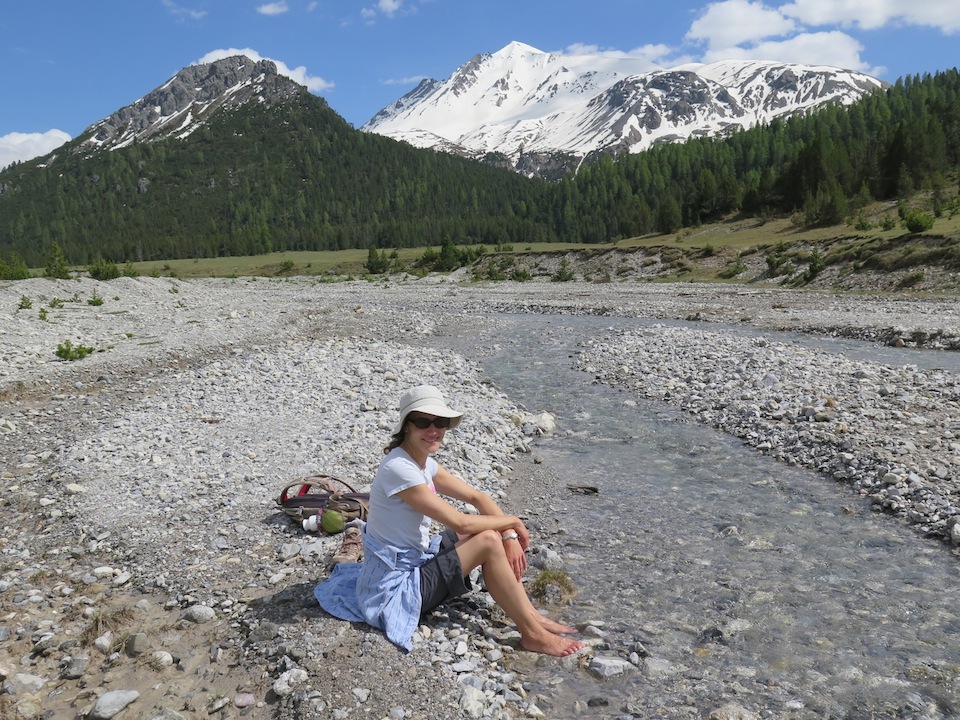Moving Abroad: It can change your view of your own country’s policies. The Frau speaks from experience. When she lived in Switzerland
and experienced Swiss policies personally, she was constantly contemplating and
comparing them with her homeland’s. Her overall conclusion? The U.S. has a lot of catching up to do in its compassion for its people.
 |
| Lady Liberty…as seen from a road in France. |
Take paid leave. The Frau never considered how important it was until
she had her daughter. Sitting on the couch in her Swiss apartment seven weeks
after giving birth, tears flowed constantly. She was sometimes still in pain and
was also having problems feeding her daughter, who, at six pounds, still
couldn’t seem to gain weight. The Frau couldn’t imagine going back to work at
that point. And with Switzerland’s 16-week maternity leave (14 weeks of it were
paid), she didn’t have to. In fact, by law, she couldn’t. Forever grateful for
giving birth abroad, it made The Frau wonder why the U.S. is still questioning
paid family and medical leave. And it also made her feel that her own country,
as the only high-income country in the world not to grant paid family and
medical leave to its citizens, was grossly behind in its compassion for its
people. She was glad (but also, in a way, very sad) that another country treated
her better as a new parent than her own would have.
Then there was healthcare. In Switzerland, health insurance is
mandatory, offered by privately owned companies, and never tied to employment.
The fact that health insurance is independent of work means that when someone
in Switzerland loses their job, decides to try being a freelancer, decides to
stay home with their children, or heck, decides travel the world for half a
year, they have the ability to do so without worrying about a loss of
healthcare coverage. When The Frau was laid off from her job as a copywriter in
Switzerland in 2009, she never had to worry about losing her heath insurance
(or paying for it, since Swiss unemployment pays a minimum of 70% of your
salary for 18 months). The Swiss healthcare system gives its people a freedom that
The Frau, like many Americans who have stayed in unfortunate jobs due to health
insurance reasons, had never experienced.
Finally, guns. The Frau didn’t like being surrounded by so many guns in
Switzerland (the Swiss are 4th in the world in guns per capita—behind
the U.S., Yemen, and Syria), but they were a part of the Swiss military and
civilian responsibility, so she learned to accept them.
Switzerland has similar freedoms to the United States concerning gun
ownership. Like Americans, the Swiss have gun ownership rights and the right to
carry them in public. Switzerland had one mass shooting in 2001, which killed
14 and injured 18, but even after that, an anti-gun referendum failed to pass. According
to a piece in Time by Helena Bachmann
which sited government figures, violent crime in Switzerland is 10 times less
than it is in the U.S. Maybe it
helps that in Switzerland, heavy
machine guns and automatic weapons are banned. Another idea a more compassionate America could adopt.
But enough about how The Frau feels after living abroad. Here’s a piece
The Frau wrote for VICE last week about how other Americans feel about their own country's gun policies after living
abroad.

